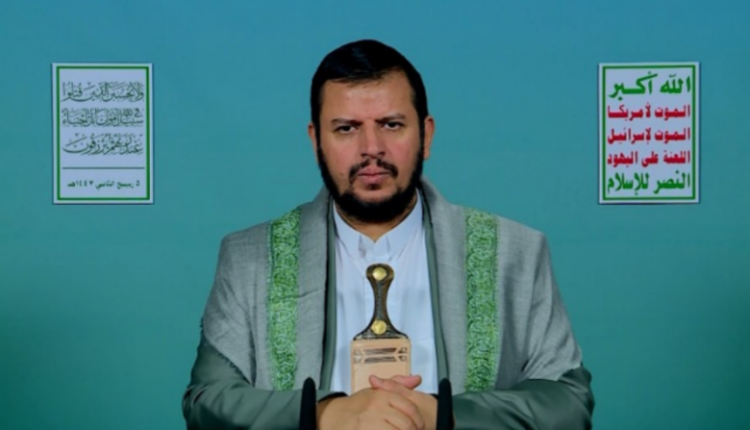“The Leader” Turns the Anniversary into a Map for Confrontation and General Mobilization
The Martyr Nasrallah Is Present… and the Choice of Jihad Is Inevitable
On the first anniversary of the death of the martyr of Islam and humanity, Hassan Nasrallah, Leader Abdul-Malik Badreddin al-Houthi’s speech was not merely an expression of condolence; it was a rousing cry and a solemn pledge. Grief was transformed into action, and martyrdom became the point of departure for a jihadi course that admits no compromise.
The message was clear: martyrdom is not an end but the herald of a beginning, and confrontation is an unavoidable choice with no room for negotiation.
A strategic speech: from mourning to practical jihad
The Leader opened with sincere collective condolence, but quickly moved to a deeper register: turning the sense of loss into an actionable program. The calls issued were not mere rhetorical flourishes but mobilization orders: support the factions, boycott the enemy, and reject any attempts to disarm the resistance or normalize relations with the enemy.
The speech became a manifesto of mobilization: grief translated into weapons, will, and work.
Lessons of the past as a roadmap for the future
The Leader invoked epic liberation moments — the 2000 liberation, the 2006 victory — not only to stir emotions but to underline a practical lesson: resistance produces victory and shifts the balance of power.
Continuing on the path of resistance is not nostalgia but a tested strategy, proof that the resisting voice can thwart projects of domination. These historic milestones are read today as a roadmap: from local victories to regional impact.
Weapons and capability: a red line we will not cross
The Leader reiterated that disarming the resistance would open the door to a new occupation and a return to past defeats; weapons are not a luxury but an existential element of deterrence and dignity.
“Who proposes that we remain unarmed?” — a denunciatory question directed at anyone seeking to undermine the nation’s immunity. The message was unmistakable: any attempt to strip the nation of its deterrent will meet popular, political, and field rejection.
The United Nations is not a refuge — self-reliance is the pragmatic option
The Leader assessed the outputs of international organizations for what they are: statements and complaints that do not halt the machinery of annihilation. The bet is not on international platforms but on popular fronts and fighters on the ground.
The call here is for field action: economic and diplomatic boycotts, embracing the factions, and unconditional support for those who stand against Zionist tyranny.
From mobilizing rhetoric to concrete measures
The speech did not stop at general appeals; it laid out practical instruments for mobilization: media support, popular rallies, field preparations, and exposing all forms of betrayal and normalization. The rhetoric was designed to activate and direct the masses: “We stand firm,” “The choice is inevitable,” “We carry his blood and his banner.” Short phrases, highly effective — they build resolve and call for practical engagement.
A martyrdom that turns grief into a pledge of action
The Leader redefined martyrdom as a moment to reorganize the ranks and convert emotions into a national responsibility. The practical takeaway: continuous mobilization, genuine support for the resistance, and permanent readiness to confront schemes of domination.
In Yemen, the speech translates into the continuation of the September 21 revolution’s uncompromising resistance approach, with Palestine, Lebanon, and the nation’s dignity remaining central to a people who will not bargain. Thus, this address was not merely a eulogy but a summons to action — a confrontation map and a call to unity in the battle for existence and honor.

